BusinessOur Business
The steel industry and biomass
Biomass attracts attention from the steel industry because of its high potential.
It is believed that steelmaking began with biomass and that biomass coal has the potential to replace traditional coal. (Source: World Steel Association)
Biomass can be utilized in various production processes, and the combination of CCS and CCUS can significantly reduce emissions. As a result, it is considered to have a substantial impact. (Source: World Steel Association)
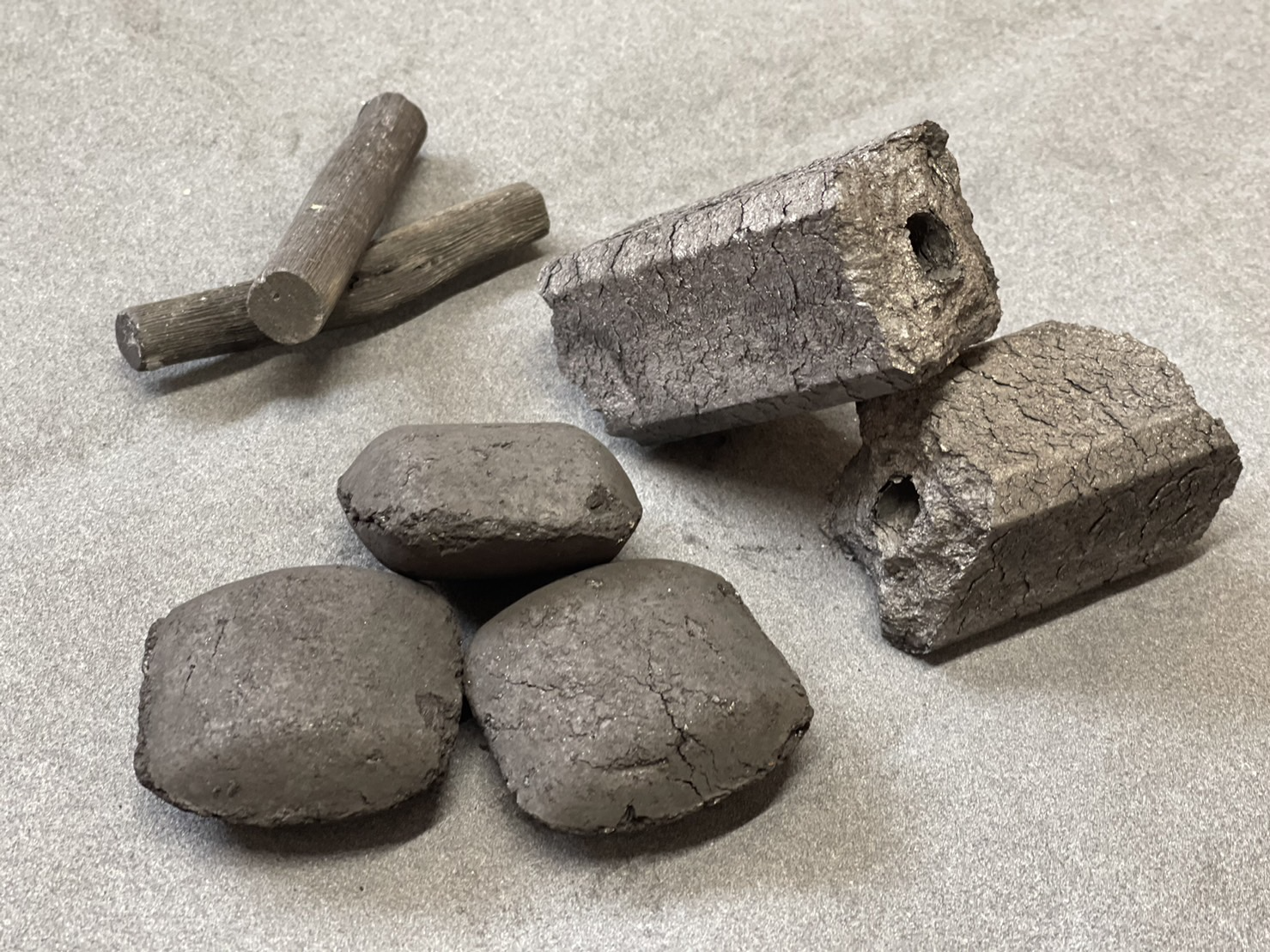
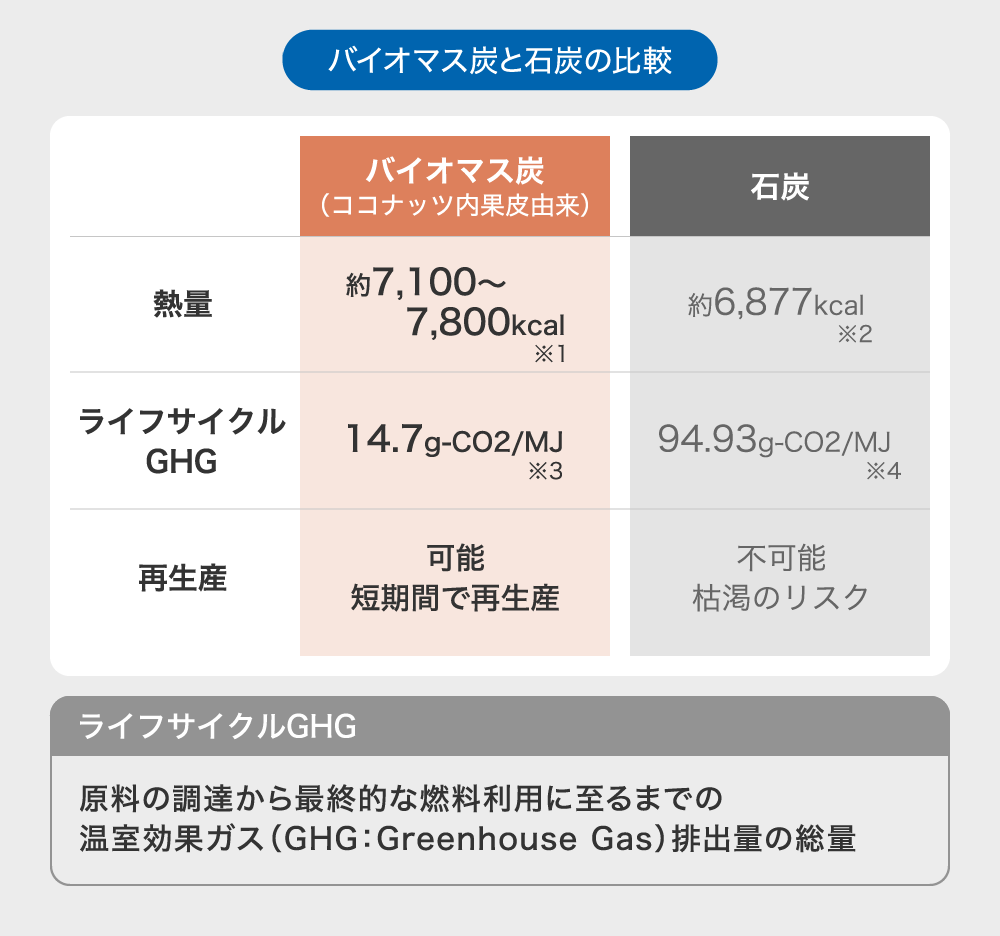
※CCS (Carbon dioxide Capture and Storage)
※CCUS (Carbon dioxide Capture, Utilization and Storage)
In Japan, the New Energy, and Industrial Technology Development Organisation (NEDO) mentions the use of biomass in the steelmaking process in its "Technological Development for Realising Zero Carbon Steel", which shows the high profile of this promising solution for decarbonization.
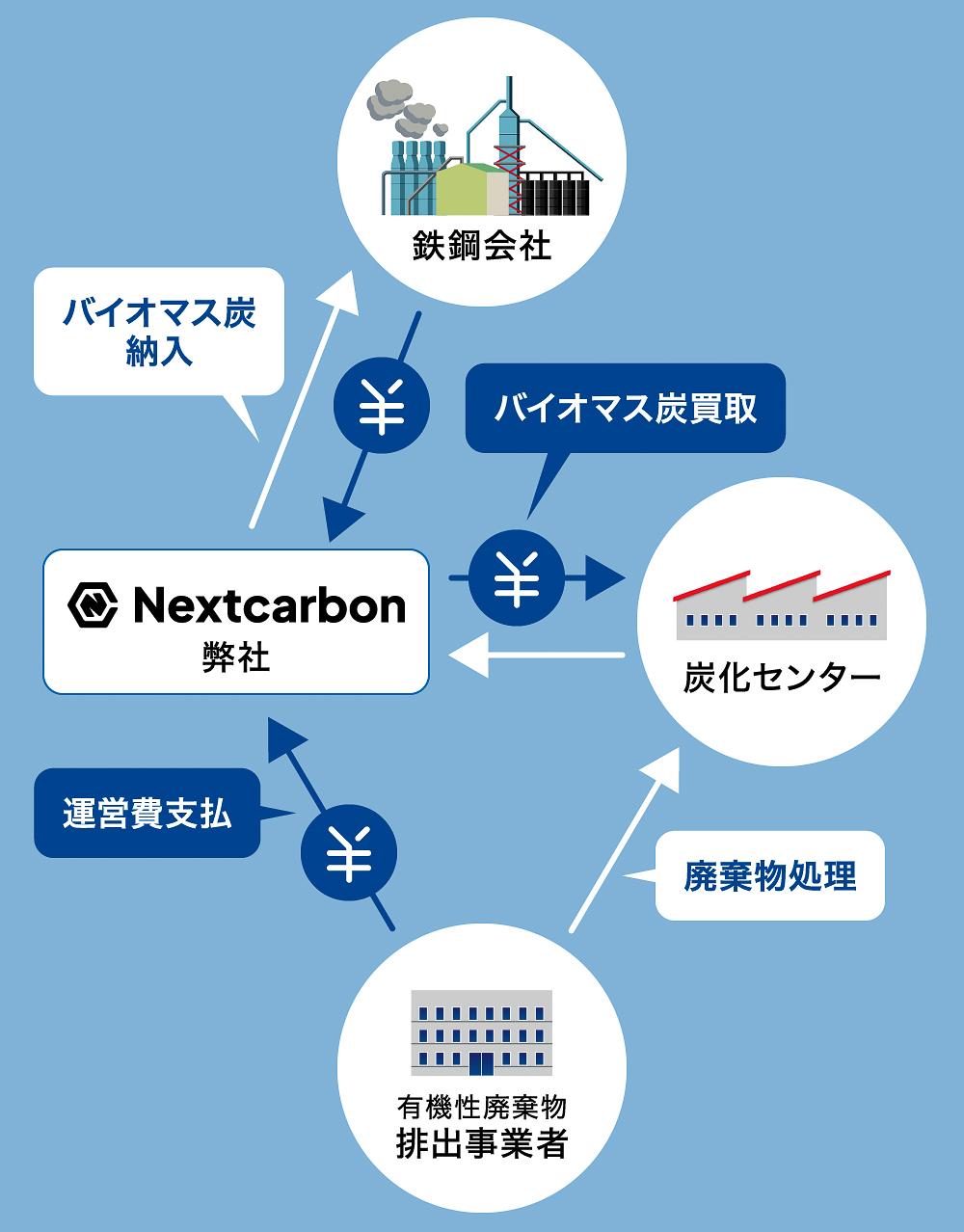
Product sales + operation of carbonization center
Our company plans to generate revenue by selling biomass charcoal to steel companies and operating carbonization center.
The biomass charcoal will be sold to steel companies for approximately 50,000 yen per ton.
It is 10% more expensive than conventional coal, but if a carbon tax were to be introduced, the price would be set at the same level as the tax levied on coal consumption, and we hope to expand its introduction with the added value of its social significance in achieving carbon neutrality.
Two ways to monetise
Biomass charcoal
Sales
About
50,000
JPY/t
Carbonization Center
Operation
<Operation/Month>
Sales of biomass charcoal
(Production share of carbonization center)
×
About
20
%
The supply chain for biomass charcoal
Negotiations are underway with government agencies responsible for coconut production in the Philippines and local farmers as buyers of coconuts, and agreements have generally been reached.
Within a few years, the plan is to establish several charcoal production plants in the Philippines to produce biomass charcoal.
As coconut shells are compressed in both mass and volume when carbonized, we want to increase profitability by processing the final charcoal locally and shipping it to Japan with minimal transport costs.
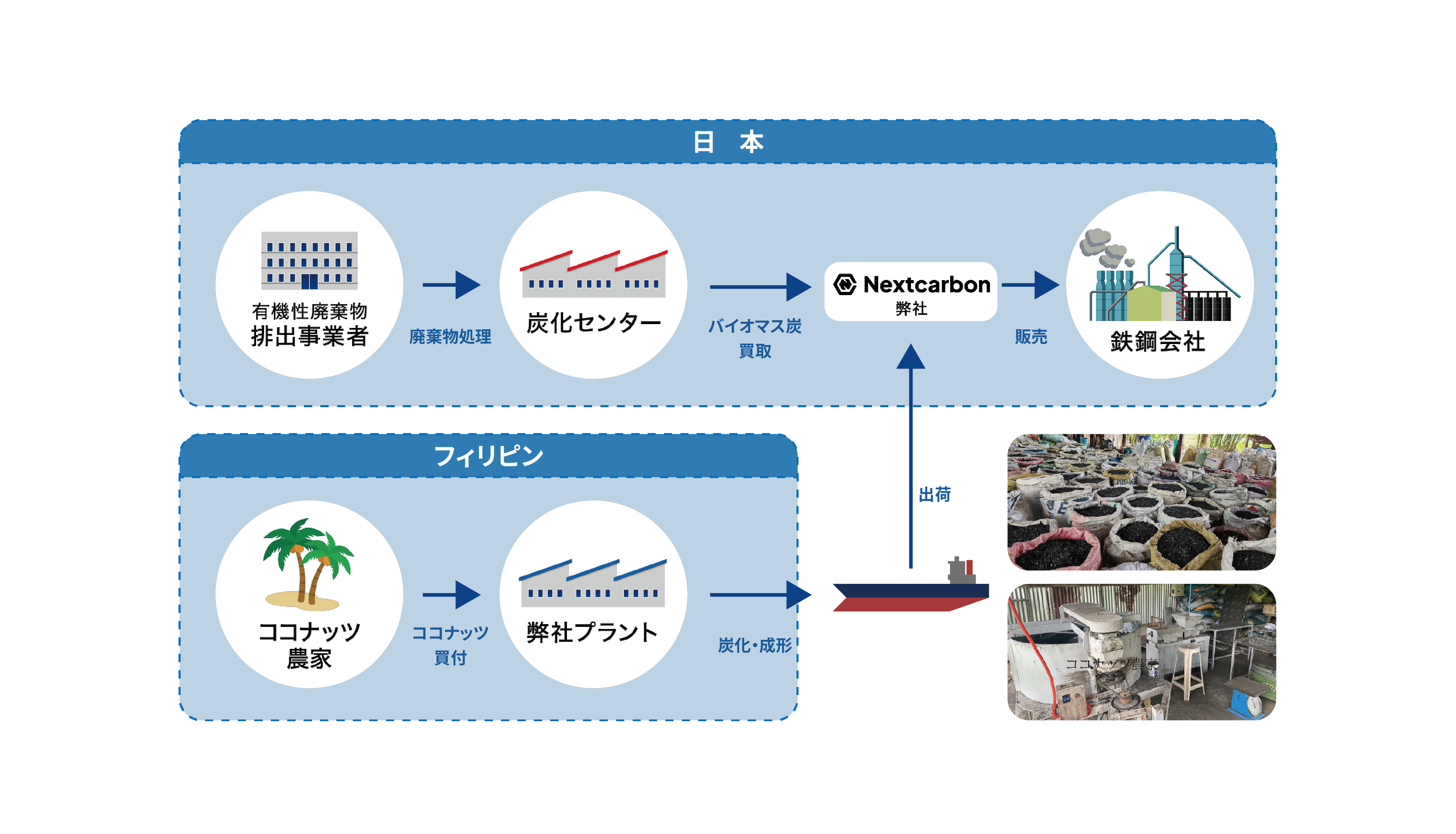
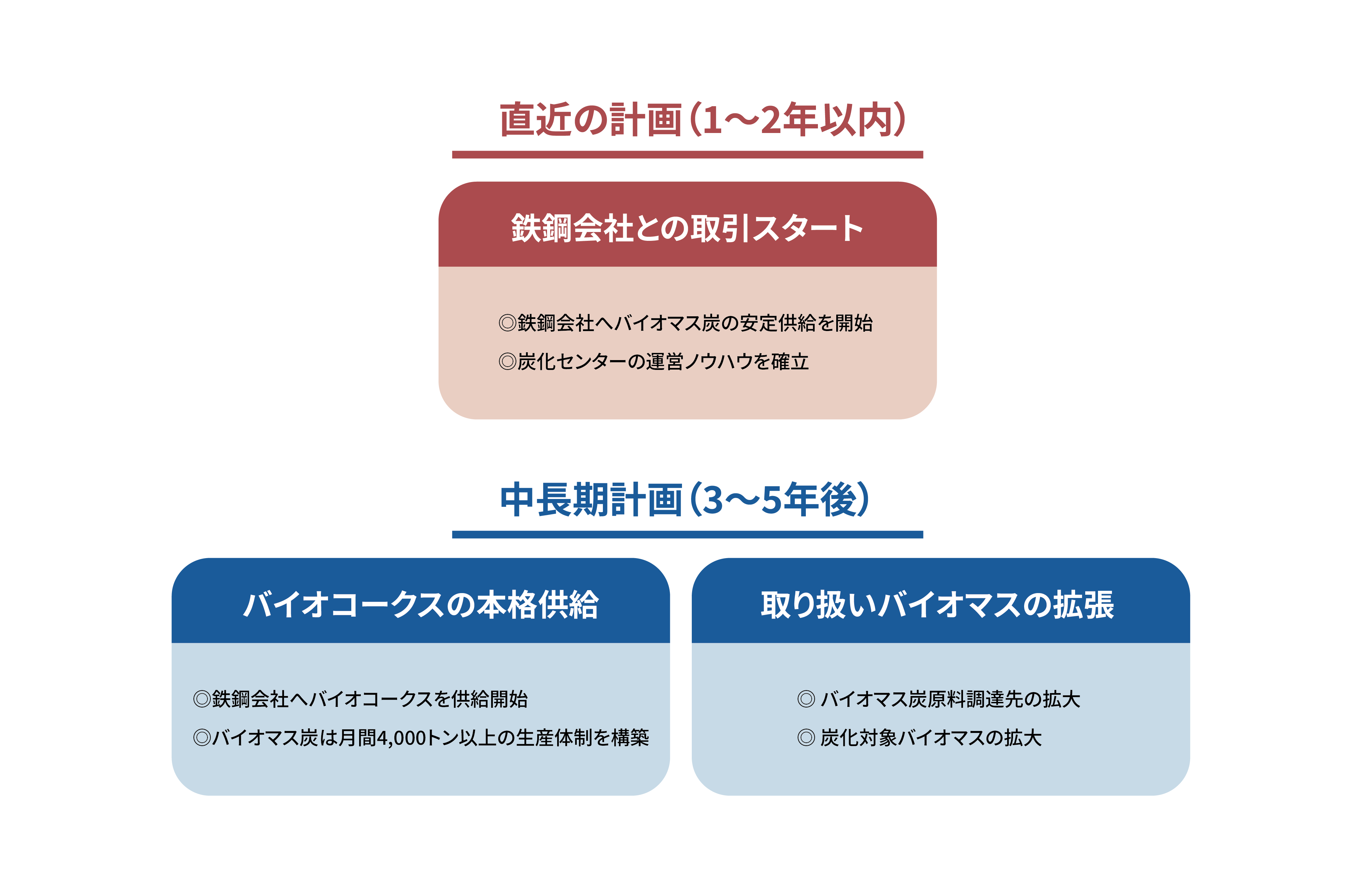
About the carbonization center
This carbonization center is joint ventures established by several companies whose business activities generate large quantities of organic waste to share the use of carbonization equipment.
Our business model is that we run the operation and buy back the charcoal produced on our behalf, recovering approximately 20% of the sales as operating costs.Three companies have already given their informal consent for joint use of the system and have high hopes for the ability to convert disposal costs into a source of revenue.
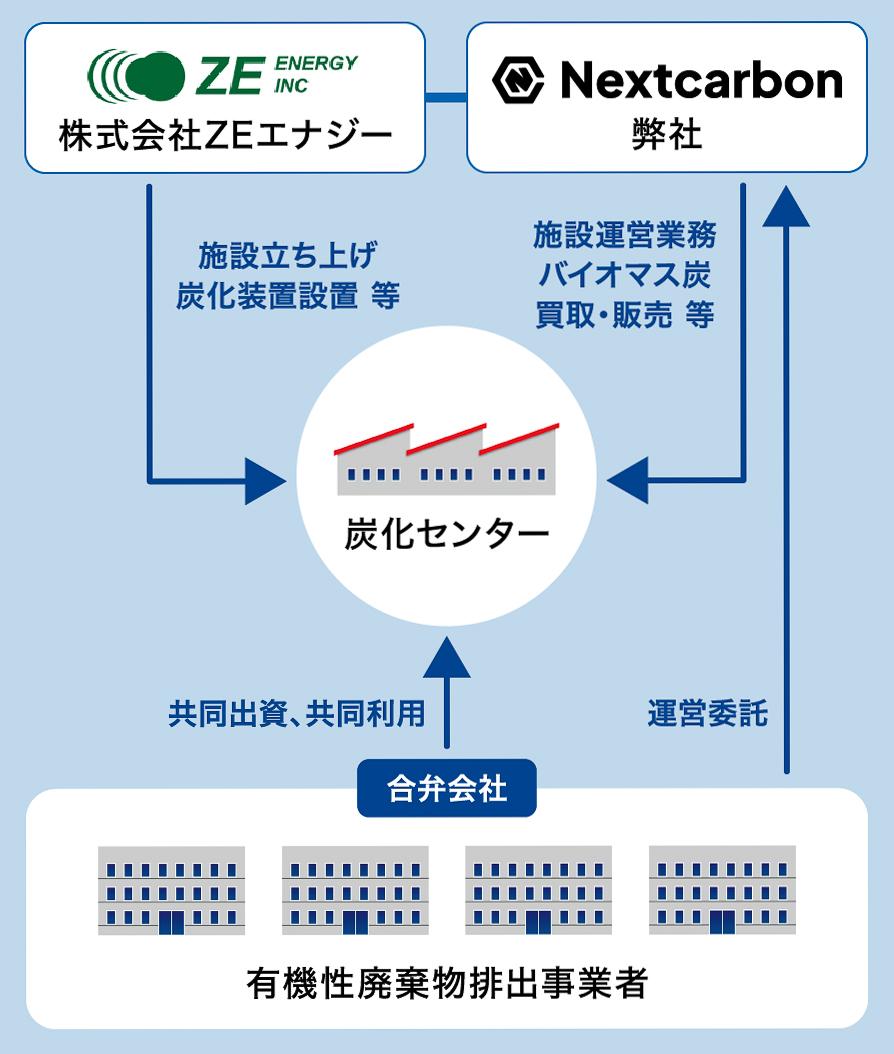
The system is designed to turn industrial waste disposal in the manufacturing industry from a cost to a revenue stream
Our company aims to contribute to the decarbonization of coal-dependent industries and become a Asian leading biomass producer.
Negotiations with major companies have progressed, and several carbonization centers will be set up in the country to build up a track record of biomass charcoal production.The first site is scheduled to start operating in Toyama Prefecture in 2024, with plans to expand nationwide starting with this.
We are also considering converting the CO2 reductions from the operation of the carbonization center into carbon credits (a system whereby credits are issued for greenhouse gas reductions and can be traded with other companies), with the aim of contributing to the decarbonization of various companies.
Nationwide expansion of carbonization center
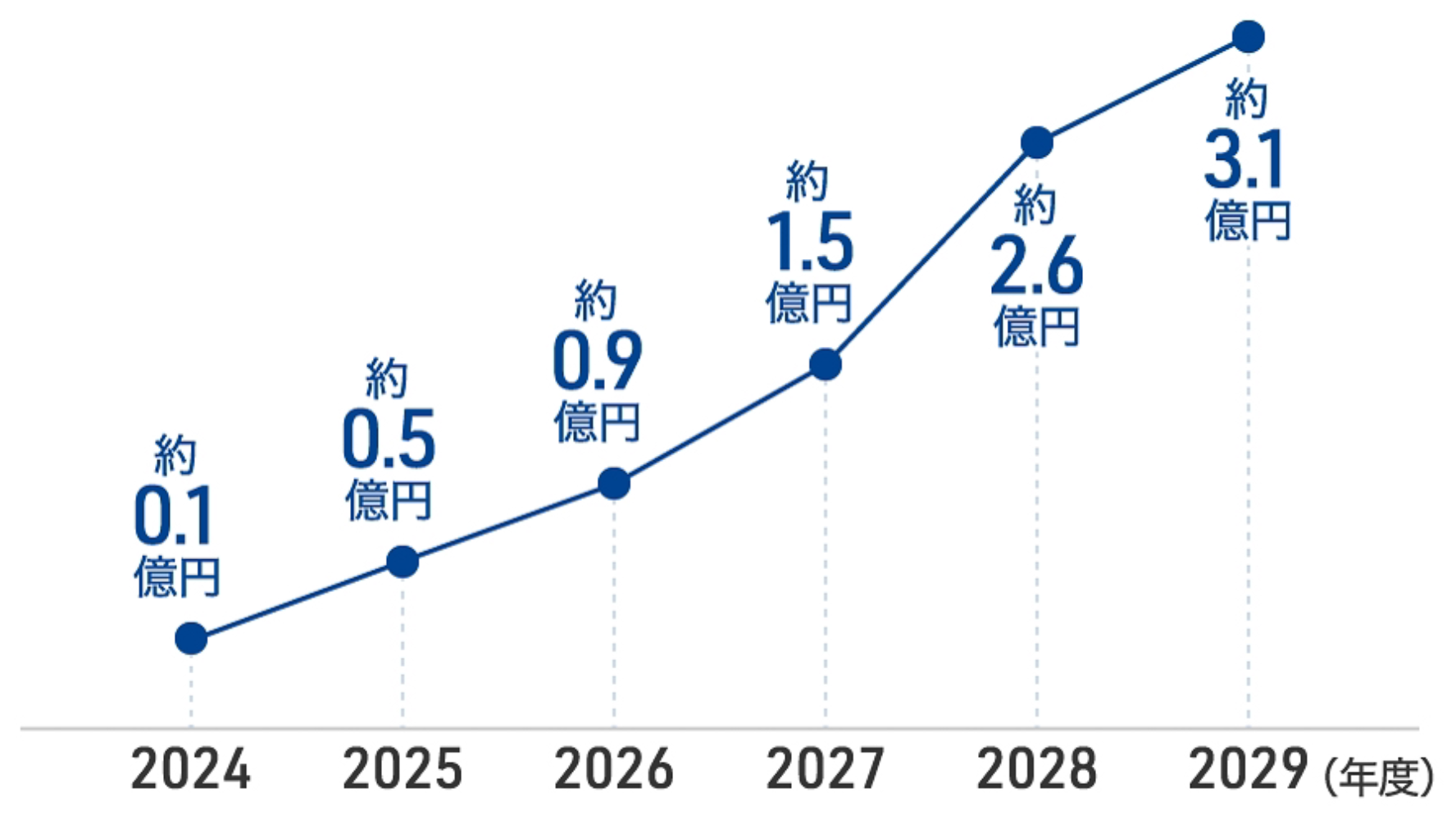
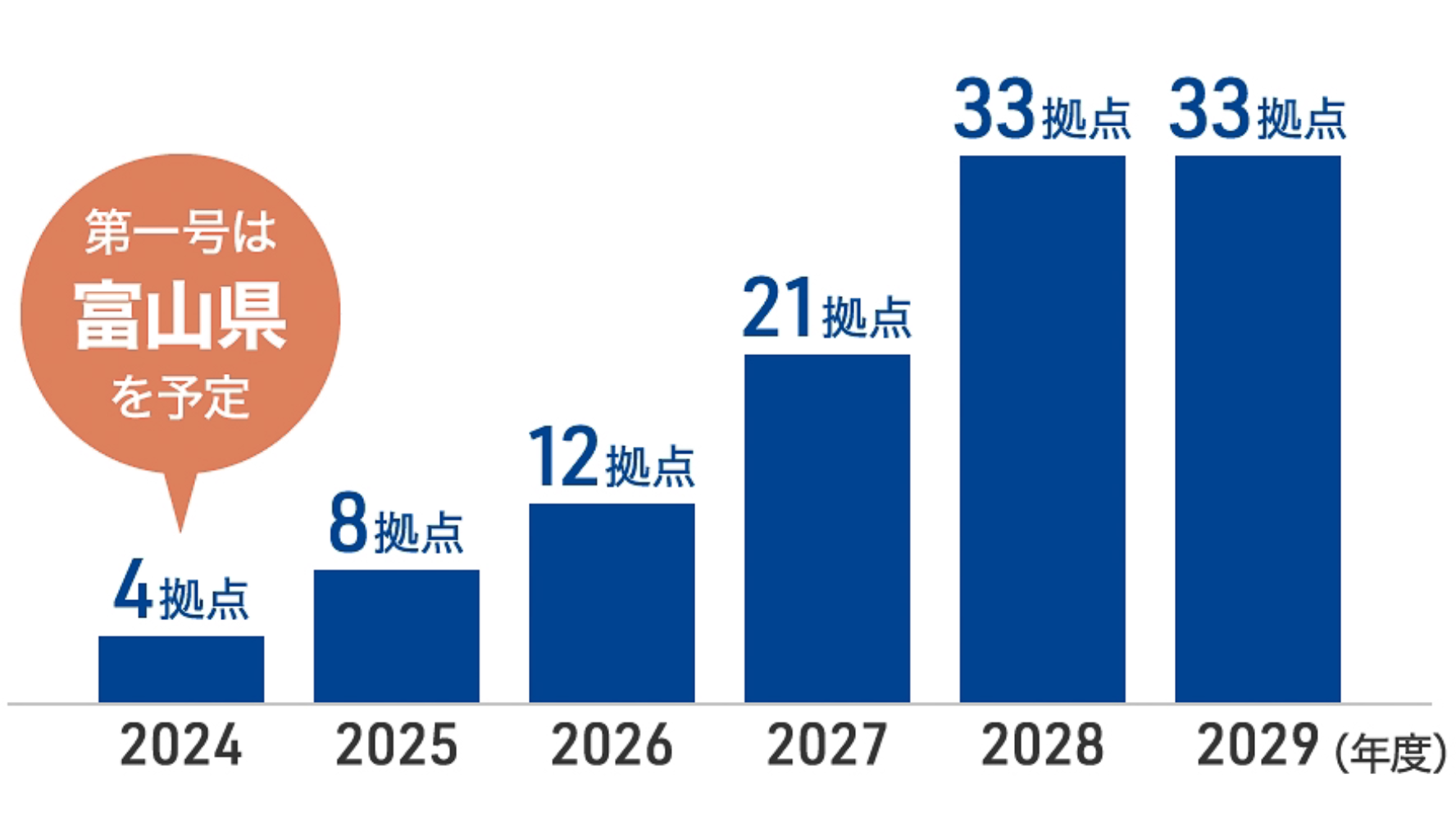
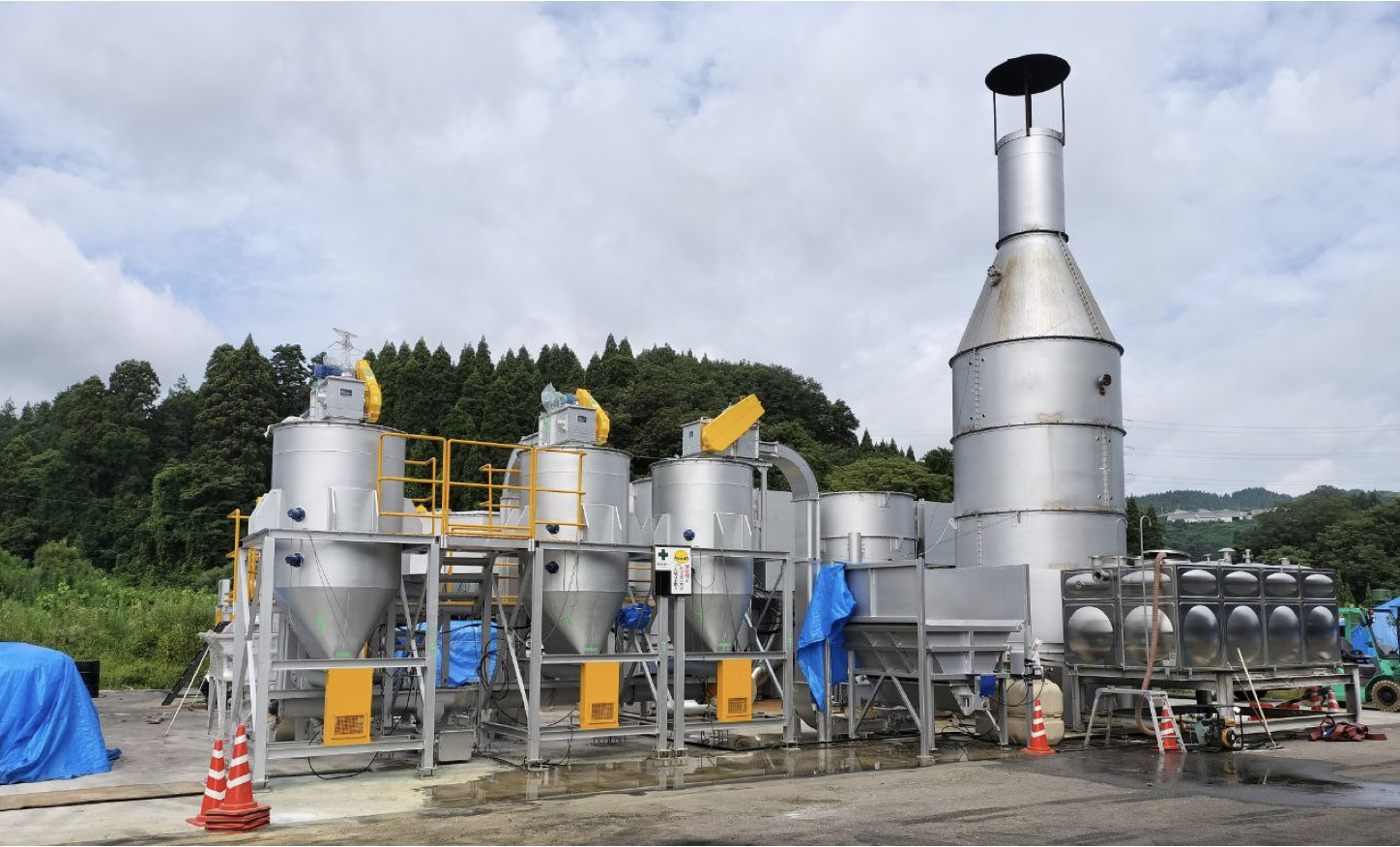
The operational knowledge gained here will be used to expand the carbonization center nationwide, with plans to launch around 30 facilities within five years.
Our company aims to contribute to cost savings for organic waste generators, build domestic biomass procurement, and stabilize our business base.